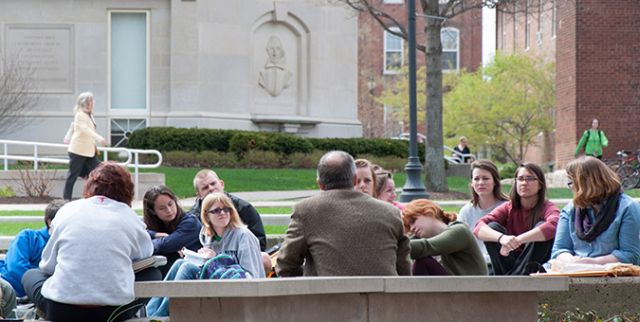
Philosophy Faculty Publications
Document Type
Book Chapter
Publication Date
2017
Publication Source
Routledge Handbook of Philosophy of Temporal Experience
Abstract
This chapter will analyze the experience and, in particular the conscious experience, of dancing in time from the perspective of the trained dancer while performing. The focus is thus on the experience and consciousness of a dancer who is moving her body in time rather than on the experience of a seated audience member or dance appreciator who is watching a dancer move. The question of how temporality is experienced in dance by the appreciator will therefore not be addressed here.
The primary kind of “experience” that will be the focus of my discussion of temporal experience comes from classical pragmatists William James, Charles Sanders Peirce, and John Dewey, for whom experience is “a series of purposive bodily activities immersed in the ongoing flow of organism-environment interactions” (Johnson 2006: 48). The mind-body engaged in this experience, according to the pragmatists, is one that is sensate to its environmental stimuli and interactions while acting within it. Both Peirce and Dewey, for example, view the person as a “psycho-physical” organism – one that is conscious of both qualitative experiences such as feelings towards the environment (attraction, repulsion, and the like) as well as physical sensations (see Peirce 1998/1892: 263 and Dewey 2008/1925: 229). James acknowledges that we are aware of qualitative aspects of our experience such as sensations of difference or change (see James 1950/1890a: 495). My account of the experience of dancing in time will also include conscious aspects of this experience (what-it-feels-like-to-the-dancer herself) as well as any sensorimotor pre-conscious or 2 non-conscious processes of which she is not aware by virtue of her bodily engagement with the world (cf. Maurice Merleau-Ponty 2008/1945: 235-239).
Inclusive pages
339-348
ISBN/ISSN
9781138830745
Document Version
Postprint
Copyright
Copyright © 2017, Routledge
Publisher
Routledge
eCommons Citation
Bresnahan, Aili W., "Dancing in Time" (2017). Philosophy Faculty Publications. 156.
https://ecommons.udayton.edu/phl_fac_pub/156



Comments
The document available for download after the publisher's required embargo is the author's accepted manuscript, provided in compliance with the publisher's policy on self-archiving. Permission documentation is on file.
To view the published version, visit an academic library or see the publisher's website.